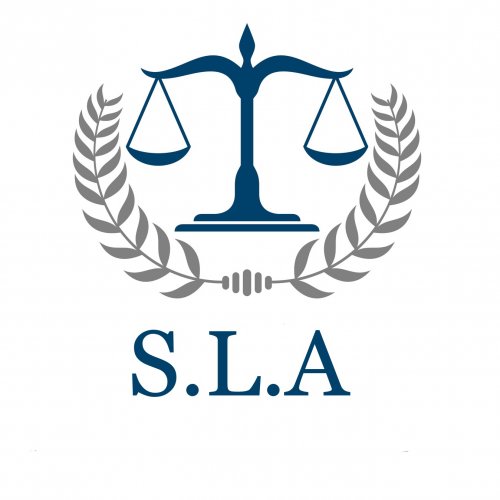Best Class Action Lawyers in Pakistan
Share your needs with us, get contacted by law firms.
Free. Takes 2 min.
Or refine your search by selecting a city:
List of the best lawyers in Pakistan
About Class Action Law in Pakistan
Class action law in Pakistan is a relatively developing area of legal practice. It allows a group of individuals who have suffered similar harm or have a common complaint to collectively bring a lawsuit against an offending party, usually a corporation or large entity. This mechanism aims to enhance efficiency by consolidating numerous similar individual claims into a single, more manageable legal process. While not as prevalent as in some other countries, class actions in Pakistan are gaining attention, especially in consumer rights and environmental issues.
Why You May Need a Lawyer
When considering a class action lawsuit, legal expertise is crucial for several reasons. Firstly, a lawyer can help identify whether your issue qualifies as a class action. Common situations may include defective products affecting multiple people, an environmental disaster impacting a community, or widespread fraudulent practices by a company. An experienced lawyer will guide you through complex legal procedures, help gather and present evidence effectively, and represent the collective interests in negotiations and courts to secure a fair outcome.
Local Laws Overview
Key legal frameworks relevant to class action lawsuits in Pakistan are mainly governed by civil law and consumer protection statutes. The Code of Civil Procedure plays a significant role, with sections allowing joint suits in certain scenarios. Consumer courts, established under the Consumer Protection Act, often become venues for class actions in consumer-related cases. Additionally, environmental laws and public interest litigation principles support collective actions in matters concerning public or community interests.
Frequently Asked Questions
1. What is a class action lawsuit?
A class action lawsuit is a legal action where a group of people with similar grievances file a single lawsuit against a defendant, typically to address common injuries or damages caused by the defendant’s actions.
2. How can I determine if my case qualifies for a class action?
You will need to show that your claim is similar to those of others affected by the same issue, and consolidation into a class action should improve efficiency and cohesion compared to individual lawsuits.
3. What are the benefits of filing a class action lawsuit?
Class actions can be cost-effective, allow collective redress when individual claims may be too small for standalone suits, and can prompt systemic change by holding large entities accountable.
4. Can anyone join a class action lawsuit?
Generally, anyone affected by the particular issue at hand can join a class action provided they fit the criteria set for class membership, subject to legal counsel guidance and court approval.
5. What role does the lead plaintiff play?
The lead plaintiff represents the interests of the class and works closely with the attorneys to make decisions about the lawsuit, including whether to settle or proceed to trial.
6. How long do class action lawsuits take?
The duration of class action lawsuits varies greatly depending on the complexity of the case, the number of parties involved, and the legal processes required. Some may resolve in months, others may take years.
7. What kind of compensation can members of a class action expect?
Compensation may include monetary awards, product replacements, or service refunds, depending on the nature of the claim and the court's ruling or settlement agreement.
8. How are legal costs handled in class action lawsuits?
Typically, attorneys work on a contingency fee basis, receiving a percentage of the settlement or judgment, so upfront costs for plaintiffs may be minimized.
9. Are class action lawsuits public record?
Yes, most class action filings become public records, making the details of the case accessible to the public unless under special circumstances where privacy is legally protected.
10. Can class action rulings be appealed?
Class action decisions can be appealed by either party involved, although the process varies depending on the jurisdiction and specific case context.
Additional Resources
For those seeking further information on class action lawsuits in Pakistan, consider reaching out to organizations such as the Pakistan Bar Council, Provincial Bar Councils, and legal aid societies. Additionally, consumer protection agencies and non-governmental organizations that focus on public interest litigation may offer guidance or support.
Next Steps
If you believe you may be part of a potential class action, the first step is to consult a lawyer who specializes in this area. Gather any evidence or documentation relating to your claim and discuss your situation with legal professionals to explore your options. Your lawyer can help determine whether a class action suit is viable and will guide you through the process of filing and pursuing the claim. Stay informed about any updates and be actively involved in discussions and decisions about the lawsuit.
Lawzana helps you find the best lawyers and law firms in Pakistan through a curated and pre-screened list of qualified legal professionals. Our platform offers rankings and detailed profiles of attorneys and law firms, allowing you to compare based on practice areas, including Class Action, experience, and client feedback.
Each profile includes a description of the firm's areas of practice, client reviews, team members and partners, year of establishment, spoken languages, office locations, contact information, social media presence, and any published articles or resources. Most firms on our platform speak English and are experienced in both local and international legal matters.
Get a quote from top-rated law firms in Pakistan — quickly, securely, and without unnecessary hassle.
Disclaimer:
The information provided on this page is for general informational purposes only and does not constitute legal advice. While we strive to ensure the accuracy and relevance of the content, legal information may change over time, and interpretations of the law can vary. You should always consult with a qualified legal professional for advice specific to your situation.
We disclaim all liability for actions taken or not taken based on the content of this page. If you believe any information is incorrect or outdated, please contact us, and we will review and update it where appropriate.
Browse class action law firms by city in Pakistan
Refine your search by selecting a city.

















